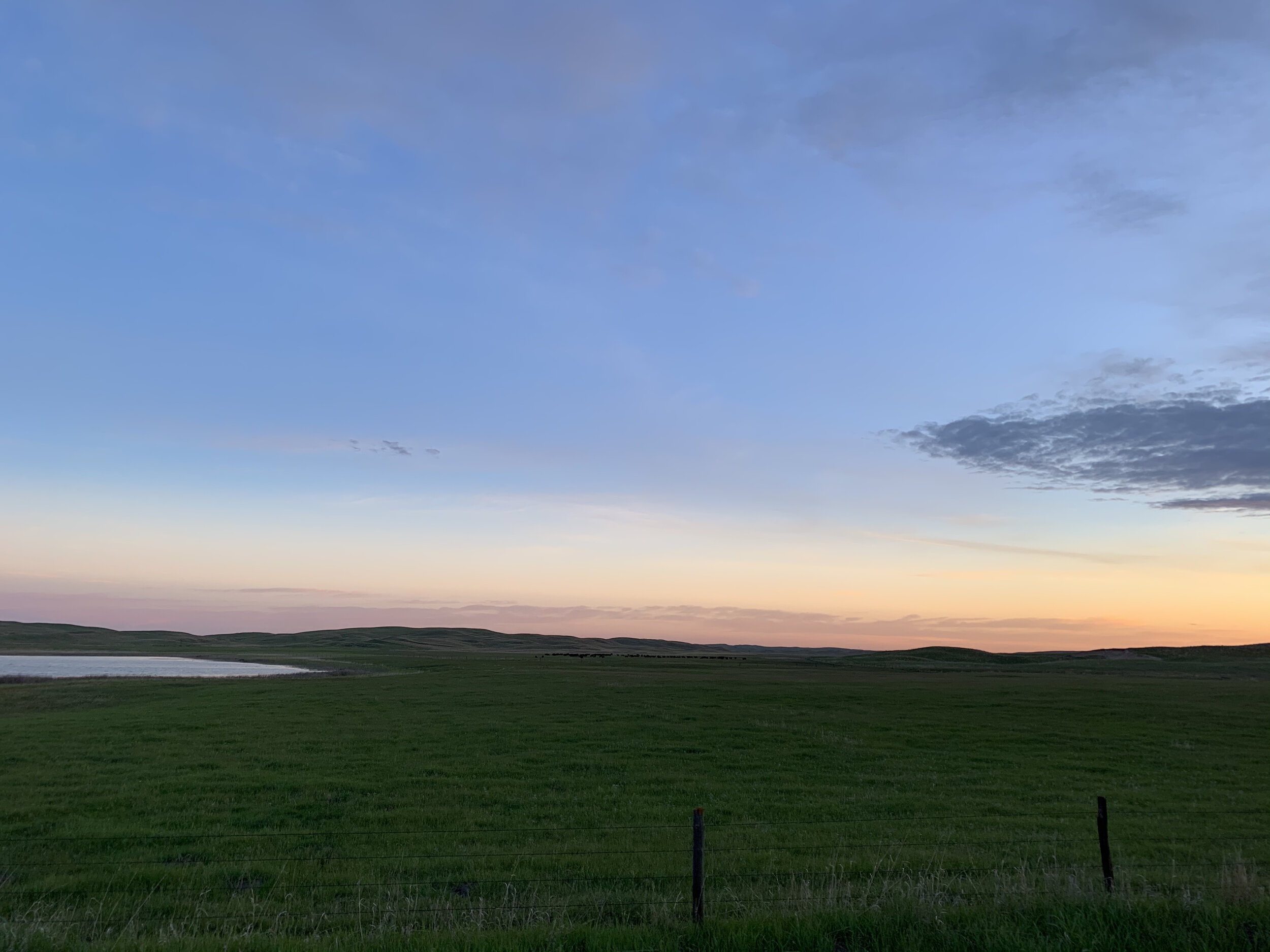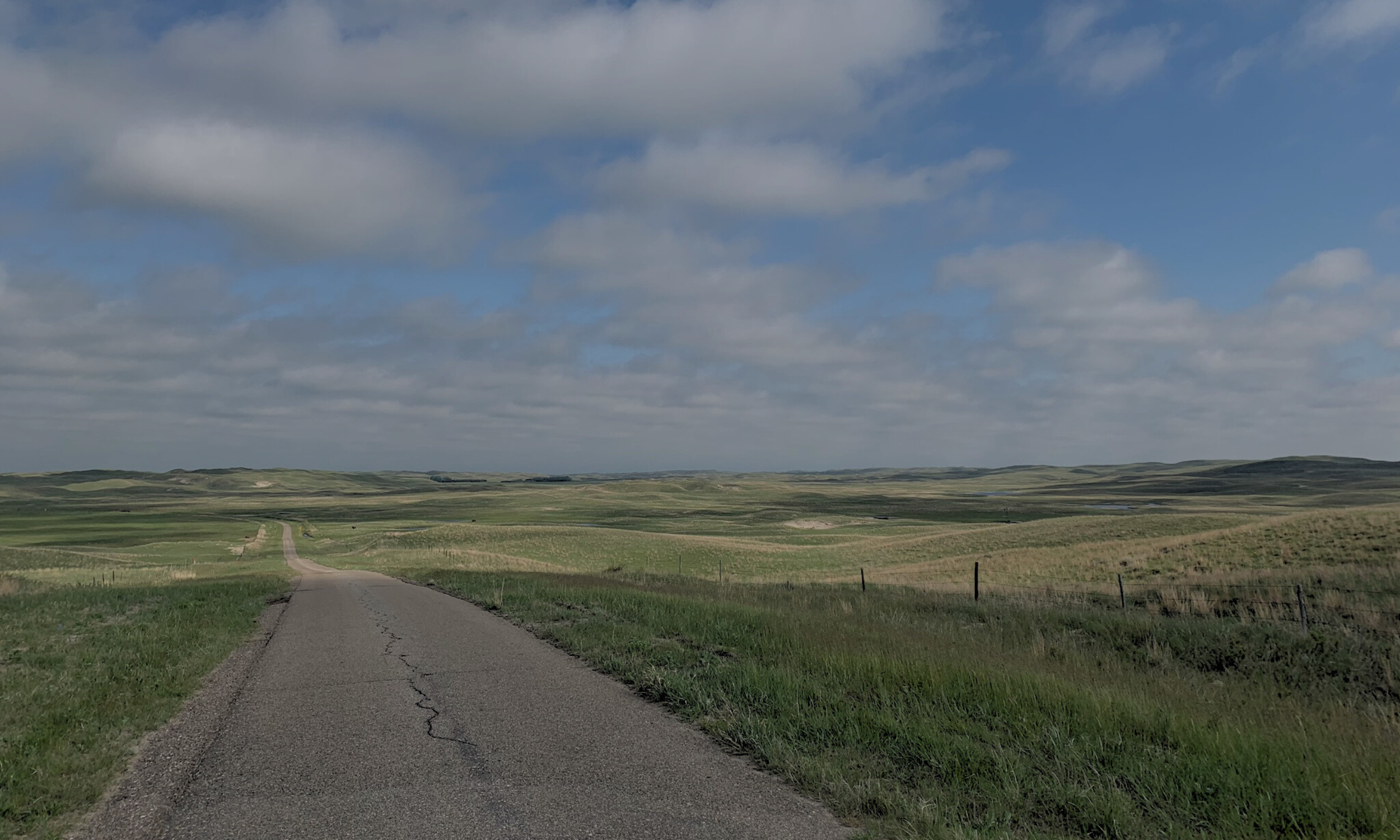The Rural Review
An online journal produced in conjunction with the Rural Reconciliation Project.
Event Summary: The Rural Lawyer with Professor Hannah Haksgaard
The Rural Reconciliation Project hosted Professor Hannah Haksgaard of the University of South Dakota Knudson School of Law to discuss her new book on rural attorneys in South Dakota.
The Rural Lawyer: How to Incentivize Rural Law Practice and Help Small Communities Thrive is the culmination of a series of interviews Professor Haksgaard conducted with South Dakota’s Rural Attorney Recruitment Program participants. These interviews highlight the experiences of participating attorneys, reveal the program's impact, and deepen understandings about what practice in rural communities looks like.
Shoemaker & Tierney: Trading Acres
In Trading Acres, Jessica A. Shoemaker (Law, University of Nebraska-Lincoln) and James Fallows Tierney (Law, Illinois Institute of Technology) address the growing trend of financialization of farmland.
Branch: Police Scanners and Everyday Rural Life
In “It’s on All the Time in Our House: Police Scanners and Everyday Rural Life,” author Michael Branch (Sociology, Hartwick College) explores the long-time use of police scanners by laypeople in a rural town in upstate New York. He argues that, despite the perceived community benefits, there are also unforeseen consequences for those living in the community.
Book Review: Debunking the Inevitability of Rural Decline
For too long, the story of rural America has seemed inevitable: mines closed; farming became unprofitable; rural post offices and train stations shuttered. When read in the passive voice, the declines of rural places and their people just…happened. But considering that the overwhelming majority of the American landscape is rural, how has so much of the country come to be thus marginalized? And if we care about rural communities—and about the cities and suburbs that ostensibly rely on their resources, no matter how invisible that relationship may be today—how can we work towards revitalization?
Over eight chapters, legal scholar and practitioner Ann M. Eisenberg summarizes and systematically dismantles the passive voice at the core of myths about rural decline, dependency, and potential renewal.
Book Review: The Value and Endurance of Home Places
Macro-level structural forces, local institutions, race, class, livelihoods, culture, landscapes, and neighborhood dynamics all come together to create something greater than the sum of their parts. It is at this essential intersectional nexus that Amanda McMillan Lequieu’s 2024 book, Who We Are is Where We Are: Making Home in the American Rust Belt, so adeptly advances the conversation on place-based marginalization and struggle. Who We Are identifies this holistic, multi-factor intersection of place, culture, and economic survival as something we all instinctively know, but may still struggle to define: “home.”
Why Aren’t We Talking About Rural Voters Anymore?
If you pay attention to public discourse about rural populations, you might have noticed something missing in the aftermath of the 2024 presidential election: think-pieces on rural voters. These think-pieces—musing on rural voters’ motivations, their seemingly disproportionate susceptibility to Donald Trump’s appeal, and their role in deciding the most recent election—were everywhere after the 2016 presidential election that led to Trump’s first term. Even in 2020, after Joe Biden’s victory and evidence of more complexity in rural voting patterns, analysts and pundits seemed eager to assess the role of the rural vote. Yet, rural voters just don’t seem to be top of mind for this round of post-election analysis. Why might that be?
Sosin and Carpenter-Song: Reimagining Rural Health Equity
In Reimagining Rural Health Equity: Understanding Disparities And Orienting Policy, Practice, And Research In Rural America, Anne N. Sosin and Elizabeth A. Carpenter-Song (Both Anthropology, Dartmouth College) argue that advancing rural health equity beyond the pandemic requires understanding the underlying problems that create rural disparities and redesigning the policies and practices that encourage the rural disadvantage.
Warner and Salazar: Shared Stewardship
In Shared Stewardship, Elizabeth Kronk Warner and Jesús A. Salazar (Both Law, University of Utah) challenge the trend of excluding tribes from participation of co-stewardship of national lands. The authors examine the existing standards and offer creative solutions to forging a path to tribal co-stewardship.
Gansauer: A Taxonomy of ‘Bidenomics’
In For Growth or Equity: A Taxonomy of ‘Bidenomics’ Place-Based Policies and Implications for US Regional Inequality, Grete Gansauer (Earth Sciences, Montana State University) develops a new taxonomy for classifying major place-based policy approaches passed during the Biden administration which were intended to promote national economic development while also providing investment for left-behind places.
Cohen & Cohen: The ‘Second Amendment of Food’
In The ‘Second Amendment of Food’: Some Reflections on American Liberalism, Mathilde Cohen (Connecticut Law) and Amy Cohen (Temple Law) explore Maine’s new “right to food” amendment by considering the history of the conception of the right to food, the legislative history of the amendment, and future implications as additional states begin to grapple with similar constitutional amendments.
Bryant & Farrell: Conservatism, the Far Right, and the Environment
In Conservatism, the Far Right, and the Environment, Jesse Callahan Bryant and Justin Farrel (both Environment, Yale) review and integrate sociological research with multidisciplinary literature on conservative and far-right environmental thought.
Ashwood et al.: Empty Fields, Empty Promises
In Empty Fields, Empty Promises: A State-by-State Guide to Understanding and Transforming the Right to Farm, Loka Ashwood (University of Kentucky, Sociology), Aimee Imlay (Mississippi State University, Sociology), Lindsay Kuehn (Farmers Legal Action Group), Allen Franco (Federal Public Defender), and Danielle Diamond (Harvard, Animal Law and Policy) use a mixed method approach to analysis and compare state right-to-farm (RTF) laws in practice.
Explore the Rural Review
Brief, objective summaries of new rural research across academic disciplines.
Collections of recent rural scholarship, news, and events.
Guest opinions, essays, research summaries, and other original content.
Original book reviews, creative reading lists, and further resources.
Summaries and announcements from recent programs and workshops.


















